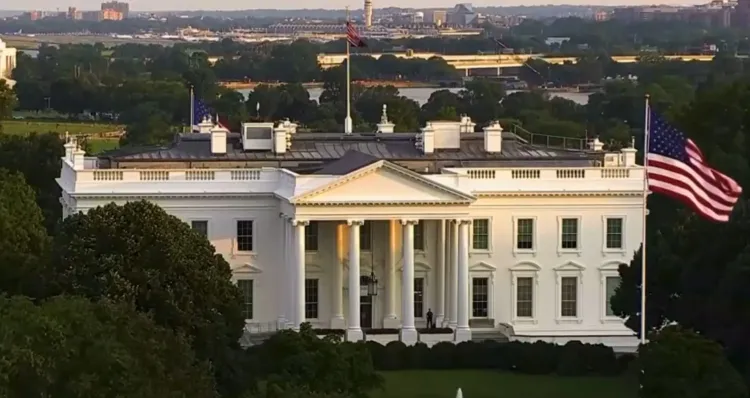How Does Pakistan's Army Chief's Nuclear Rhetoric in the US and the Timing of BLA Designation Reflect Broader Realities?

Synopsis
Key Takeaways
- General Asim Munir's remarks threaten regional stability.
- The BLA designation reflects US-Pakistan dynamics.
- India's response underscores ongoing tensions.
- Geopolitical interests of China and Iran complicate the situation.
- South Asia's rivalries involve multiple global powers.
Rome, Aug 18 (NationPress) General Asim Munir, the Chief of Pakistan's Army, has made headlines with his nuclear remarks on US soil, coinciding with the US designation of the Balochistan Liberation Army (BLA) and its elite Majeed Brigade as Foreign Terrorist Organisations (FTOs). This underscores a significant reality: the rivalries in South Asia transcend the subcontinent.
During his recent trip to the US, Munir addressed an audience in Tampa, declaring that Pakistan would “wait for India to construct a dam, and when they do, we will obliterate it.” This statement was met with sharp criticism from India's Ministry of External Affairs (MEA), which condemned it as “nuclear sabre-rattling” and raised longstanding questions regarding Pakistan's nuclear command integrity, particularly its military's collaboration with terrorist factions. India expressed disappointment that such remarks were made “from the soil of a friendly third country.”
Shortly after Munir's comments, the Trump administration classified the BLA and Majeed Brigade as FTOs, a designation Pakistan had actively sought.
Theodore White, writing for the Indo-Mediterranean Initiative CNKY, noted, “For India, this incident serves as a reminder that its strengthening ties with Washington do not eliminate tactical partnerships between the US and Pakistan, especially in counterterrorism efforts.” This development coincides with a moment of tension in India–US relations.
The report titled 'India Pushes Back as Pakistan’s Army Chief Tests the Boundaries in Washington' highlights that the ramifications of Washington targeting the BLA extend beyond the India–Pakistan dynamic.
The BLA has a history of attacking Chinese engineers and infrastructure associated with the China–Pakistan Economic Corridor (CPEC), a flagship project of the Belt and Road Initiative in South Asia. Thus, targeting this group aligns with Beijing’s security interests, even amidst the US–China strategic rivalry, a fact not overlooked by either nation.
Moreover, the CNKY report indicates that the Baloch insurgency also impacts Iran’s eastern border, where Tehran grapples with threats from Sunni Baloch militants in its Sistan and Baluchistan province. By weakening the BLA, the US indirectly supports Iran's objectives, adding further complexity to a region where US and Iranian interests diverge.
“Rivalries in South Asia do not remain confined within the subcontinent; they are influenced by the interests of several powers — the US, China, and Iran — whose agendas often clash, potentially destabilizing even the most carefully managed partnerships,” the report concludes.










